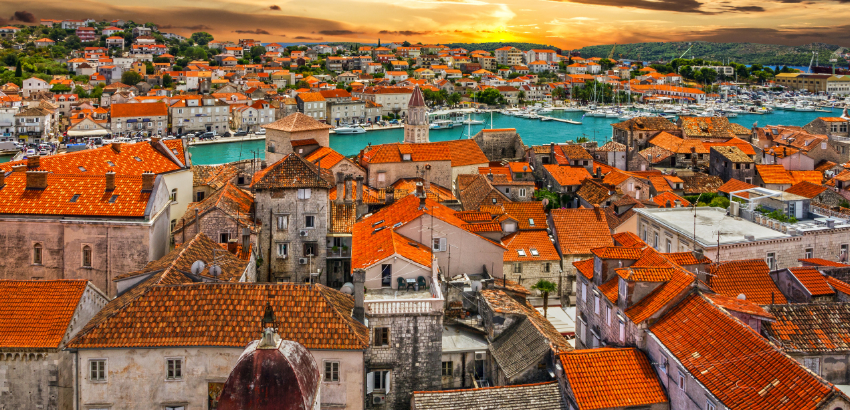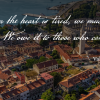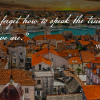
Published: October 31, 1999
View the Original Newsletter: Iskra-45.pdf
About This Issue
Iskra No. 45 marks a pivotal moment for Croatians at home and abroad — a time of remembrance, renewal, and reflection. This issue captures Croatia standing on the threshold of a new millennium while continuing to heal from the scars of war. From heartfelt memorials to discussions on rebuilding the nation’s moral and social fabric, this edition bridges themes of community, politics, and personal responsibility.
The cover features Marija Jurković, a beloved member of the community, remembered for her strength and grace. Inside, readers find updates from the diaspora, thoughtful commentary from Croatian writers, and an insightful Motrišta column that challenges citizens to rebuild with integrity and purpose.
Editorial: A Message from Valentina Krčmar
Editor-in-Chief Valentina Krčmar opens with a warm, personal letter to readers — announcing her long-awaited vacation while promising the next issue will feature coverage of the grand opening of Croatia’s first embassy in Canada. She thanks contributors and readers for sending in stories, reminding everyone that Iskra thrives because it reflects the community’s collective voice.
She also dedicates this issue to the memory of community figures who have passed: Marija Jurković, Zvonko Mekinda, and Nena Herak — individuals who embodied the compassion, resilience, and spirit of the Croatian people.
“So many of those who touched us with their kindness live on in our memories. On All Saints’ Day, may we remember them not with sadness, but with gratitude.”
Feature: The Opening of the Croatian Embassy in Canada
One of the proudest announcements in this issue is the formal opening of the Croatian Embassy in Ottawa, scheduled for November 14, 1999. Ambassador Andrija Jakovčević invites all Croatian-Canadians to attend the celebration, including a concert at the Croatia Banquet Hall in Mississauga and an art exhibition in Ottawa.
The article highlights that the embassy’s creation was funded largely by Croatian emigrants, making it a symbol of national pride and diaspora unity — a gift from Croatians abroad to their homeland.
Community Highlights
The Toronto community continues to thrive, with news of charitable drives, cultural gatherings, and support for children in need — including fundraising for young Filip, a child from Zagreb receiving medical care abroad. Valentina and the Iskra team thank readers for their donations, reminding them that “even a few dollars can change a life.”
Events like the HDZ Canada 10th Anniversary Banquet, Zagorje Club Dinner, and Croatian Pensioners’ Society celebrations are featured as reminders of the strong community spirit that keeps Croatian culture alive across southern Ontario.
Motrišta: “Who Took the Benches?”
In one of the issue’s standout articles, Vladimir Goss writes a reflective piece about morality, social decay, and self-responsibility in Croatia. Using a simple story — the theft of wooden benches from a scenic spot near Medvedgrad — he laments the lingering habits of corruption and selfishness that undermine the nation’s growth.
He draws connections between petty theft, inefficiency, and political complacency, urging Croatians to reject old mentalities and build a culture of honesty and accountability.
“We can no longer blame others for our misfortunes — not the Turks, not the Venetians, not anyone. We steal from ourselves when we neglect what belongs to all of us.”
Goss concludes that Croatia’s revival depends not on politics but on the moral renewal of its people. The story becomes an allegory for the nation’s soul: rebuilding the benches means rebuilding integrity, community, and pride.
Reflection: Remembering the Saints
Valentina closes the issue with an emotional reflection for All Saints’ Day (Sisvete) — honoring those who shaped the community through love and sacrifice. She writes of the late Marija Jurković and Zvonko Mekinda, the first editor of Iskra, describing them as “souls who continue to guide us through their example.”
Her message is clear and timeless: remembrance is not just about mourning the past, but celebrating the legacy left behind.
“Let us love one another more. Let us take care of each other. We are a small nation — if we don’t protect ourselves, who will?”




